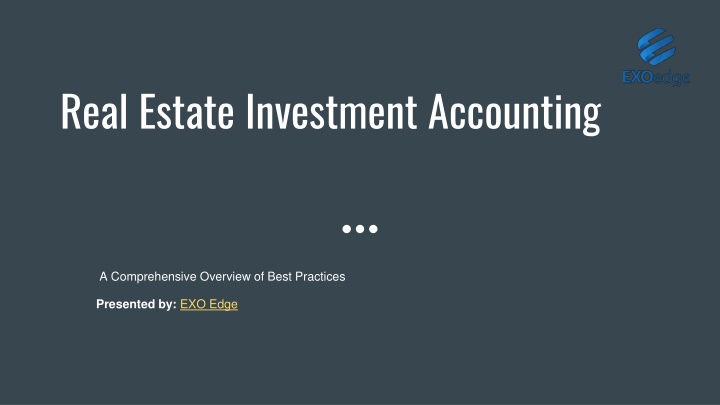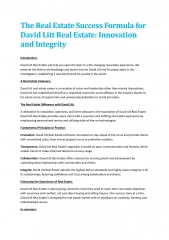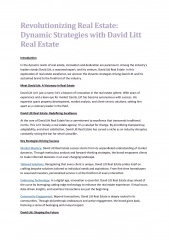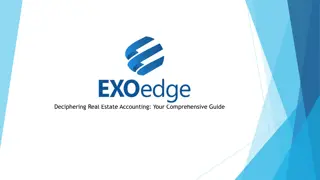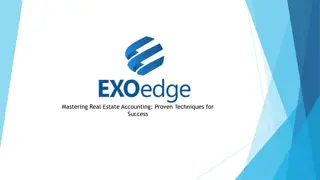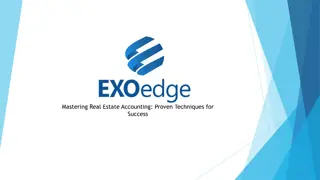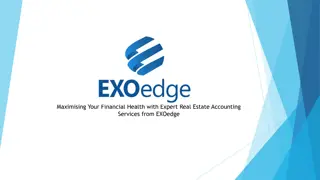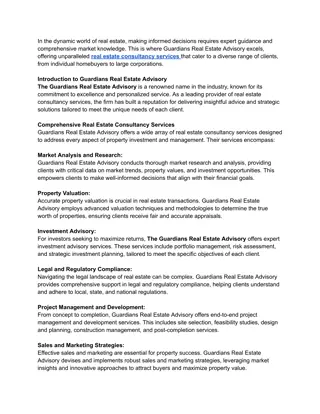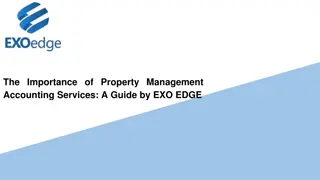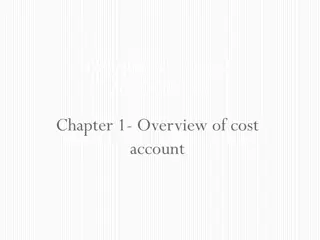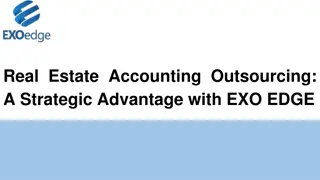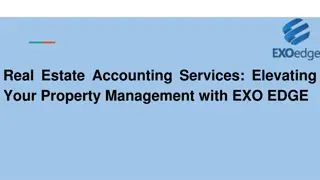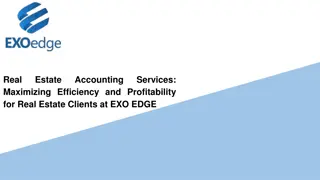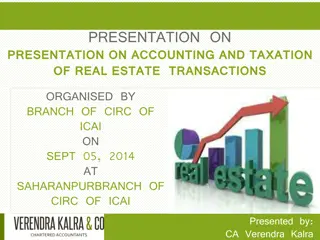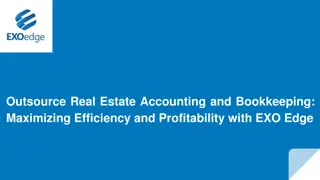Real Estate Investment Accounting
The "Real Estate Investment Accounting" presentation by EXO Edge covers the essential aspects of financial management for real estate investments. It highlights the importance of accurate accounting for decision-making and regulatory compliance. Ke
Download Presentation

Please find below an Image/Link to download the presentation.
The content on the website is provided AS IS for your information and personal use only. It may not be sold, licensed, or shared on other websites without obtaining consent from the author.If you encounter any issues during the download, it is possible that the publisher has removed the file from their server.
You are allowed to download the files provided on this website for personal or commercial use, subject to the condition that they are used lawfully. All files are the property of their respective owners.
The content on the website is provided AS IS for your information and personal use only. It may not be sold, licensed, or shared on other websites without obtaining consent from the author.
E N D
Presentation Transcript
Real Estate Investment Accounting A Comprehensive Overview of Best Practices Presented by: EXO Edge
Why Real Estate Investment Accounting Matters Provides clear insights into property performance and profitability. Helps in compliance with financial regulations and tax laws. Enables better decision-making for investment strategies. Ensures accurate cash flow tracking and financial reporting.
Key Accounting Concepts in Real Estate Investment Revenue Recognition: Rental income, lease agreements, and sales. Depreciation: Tracking property value changes over time. Operating vs. Capital Expenses: Differentiating between routine and long-term expenditures. Tax Implications: Deductions and depreciation for tax benefits.
Best Practices & Tools for Success Adopt Specialized Accounting Software: Streamline record- keeping and reporting. Regular Financial Audits: Ensure accuracy and transparency. Cash Flow Management: Optimize income and expenses. Stay Updated on Regulations: Adapt to changing tax and accounting laws.
